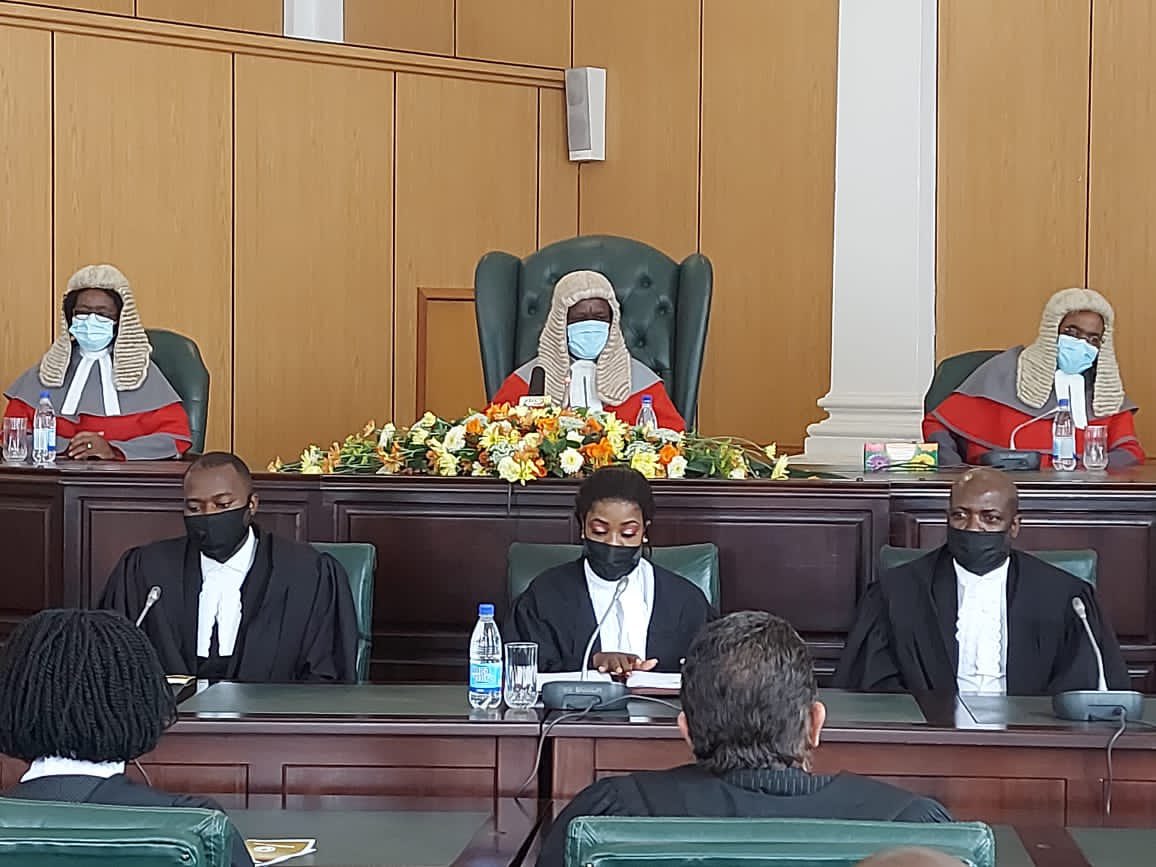Harare (New Ziana) – Chief Justice Luke Malaba on Monday implored government to adequately fund the Judiciary and offer attractive conditions of service to stem high staff turnover.
Officially opening the 2022 legal year, Malaba commended judicial officers for their performance in 2021, albeit under difficult conditions, mainly caused by the Covid-19 pandemic and poor conditions of service.
He said it was incumbent on the government to ensure that the wheels of justice kept turning.
“In view of the economic environment that is prevailing in the country at the moment, workers in the public sector including workers in the Judicial Service continue to experience financial hardships due to low remuneration levels. It is therefore important that the government should constantly review the salaries of workers so that they remain relevant to the prevailing economic situation,” he said.
“The JSC witnessed a high staff turnover in the year under review because of low salaries. During the year under review the JSC lost a total of 88 members of staff through resignations of whom 18 were Magistrates.
“Human capital is the most important resource in the success of any organisation. To stem the high turnover of competent and skilled employees, an employer whether public or private must ensure it has in place attractive and competitive conditions of service. It is no exaggeration to say that justice suffers when judicial officers are underpaid.”
Malaba said during 2020, the JSC also experienced operational challenges due to inadequate funding.
He said because of this, the JSC, in some instances, had to cut down on its operations or to rely on support from development partners.
“A judiciary that knocks on several doors for funding or that engages in commercial activities for the generation of income, undermines the public perception of its ability to adjudicate on disputes impartially,” he said.
Meanwhile, Malaba said over six months of court time was lost in 2021 due to Covid-19 lockdown measures which the government instituted.
For the greater part of the year, courts were only attending to urgent matters only.
As a result, Malaba said the Constitutional Court completed only 24 cases in 2021, down from 43 in 2020, while the Supreme Court completed 619 cases last year compared to 718 completed the previous year.
The situation was the same across the board as other courts including the High Court and the Magistrates Court recorded lower received and completed cases in 2021.
“Whilst the judicial officers applied themselves commendably, the courts could not perform at optimum levels because of the constant lockdowns announced by government to prevent the spread of Covid-19. For more than six months of the year, the courts were offering very limited services and even for those limited services, members of the public did not have access to the courts.
“The limitation in court operations resulted in fewer cases being finalised as compared to the last two years. In certain instances, the backlog in cases has unavoidably risen,” Malaba said.
Given the ongoing nuture of the pandemic, Malaba said the JSC would speed up the transition to information communication technologies which would ensure uninterrupted ICT based court operations.
“The time has however come to take the challenges presented by Covid-19 as opportunities; the need to accelerate the implementation of requirements for the automation of the operations of courts by the adoption of an electronic case management system has inevitably arisen,” he said.
Malaba warned judicial officers against corruption.
“There must be a demonstrable display of conduct consistent with zero tolerance to corruption in the judiciary. Members of the judiciary must always avoid putting themselves in situations in which their conduct gives rise to complaints involving allegations of corruption.”
The 2022 legal calendar is divided into three terms with the first one stretching from January 10 to April 1, while the second commences on May 9 and ends on July 29.
The third and final term for the year starts on September 5 ending on November 25.
New Ziana



